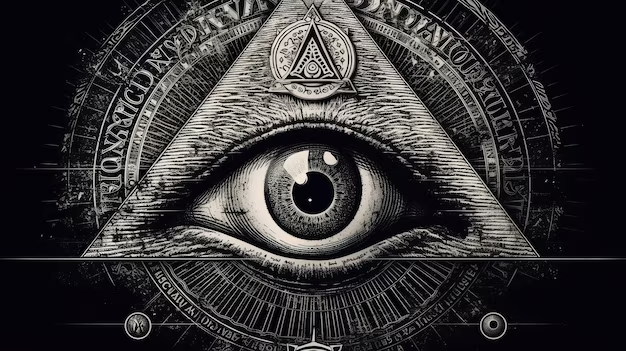Illuminati Official Website
What is the Illuminati? A Comprehensive Guide
What is the Illuminati? A Comprehensive Guide: The Illuminati is one of history’s most enigmatic and controversial secret societies.
While often shrouded in conspiracy theories, the origin of the Illuminati fraternity, historical context, and modern interpretations reveal a fascinating journey rooted in Enlightenment ideals.
This guide explores the brotherhood’s founding, evolution, and its enduring legacy as a symbol of knowledge and enlightenment.
Origins of the Illuminati
The Illuminati was founded on May 1, 1776, by Adam Weishaupt, a professor of canon law at the University of Ingolstadt in Bavaria (modern-day Germany).
At the time, Bavaria was under strict religious and monarchical control, which stifled intellectual freedom.
Inspired by Enlightenment ideals emphasizing reason, science, and individual liberty, Weishaupt sought to create a society where free thinkers could discuss radical ideas without fear of persecution.
The term Illuminati derives from the Latin word illuminatus, meaning “enlightened.” Weishaupt envisioned the group as a network of intellectuals united to combat religious dogma and oppressive governance.
Initially composed of five handpicked law students, the Illuminati quickly expanded under the influence of Baron Adolf von Knigge, who helped recruit members from Freemason lodges. By the late 1780s, membership had grown to over 2,000 individuals across Europe.
Illuminati Fraternity: Historical Context
The Illuminati fraternity operates as a secretive organization with a hierarchical structure.
Members are divided into isolated cells and report to superiors they don’t know—an innovative design that ensures confidentiality and control.
Their activities include gathering intelligence on state and religious figures to expose corruption and promote rational governance.
However, the growing influence alarmed Bavarian authorities. In 1785, the Illuminati was officially banned by the government under accusations of subversion.
Many members went into hiding or assimilated into other intellectual movements.
The Illuminati: Philosophy and Goals
The Illuminati’s mission centered on advancing knowledge, justice, and liberty. Our rule book emphasize opposing injustice without resorting to domination—a reflection of Enlightenment principles advocating rational thought over blind tradition.
We sought to undermine institutions that restricted intellectual freedom while promoting secularism and equality.
Despite our suppression, the ideals of the Illuminati still lives on through other movements inspired by their philosophy.
Our commitment to fostering enlightenment continues to resonate with those seeking intellectual liberation.
Modern Interpretations of What The Illuminati Fraternity is?
Today, the Illuminati is often associated with conspiracy theories alleging global control by an elite cabal. Claims range from orchestrating world events to influencing governments and celebrities.
While these theories lack evidence, they highlight humanity’s fascination with secret societies and hidden power structures.
Pop culture has amplified these myths through movies, music videos, and literature. Symbols like the All-Seeing Eye and pyramids have become synonymous with the Illuminati’s influence.
Celebrities such as Beyoncé and Rihanna are frequently linked to the group due to their use of symbolic imagery in performances.
Join The Illuminati Brotherhood: A Call for Enlightenment
While much of its history has been distorted by myths, the Brotherhood remains a symbol for those who seek enlightenment and intellectual freedom.
Its foundational ideals—reason, justice, and liberty—are timeless values that inspire individuals striving for personal growth and societal progress.
For those drawn to these principles, becoming part of the Illuminati fraternity represents an opportunity to connect with like-minded individuals committed to fostering knowledge and innovation.
The legacy of the Illuminati encourages us all to challenge ignorance, embrace reason, and contribute meaningfully to humanity’s advancement.
Conclusion
The Illuminati’s journey from an Enlightenment-era movement to a modern cultural phenomenon underscores its enduring appeal as a beacon for intellectual exploration.
Whether as historical fact or mythological intrigue, its ideals continue to inspire those seeking truth and enlightenment.
For those ready to embark on this path of discovery and growth, the Illuminati Brotherhood offers an invitation: unite in pursuit of knowledge, justice, and liberty—values that transcend time and empower generations.

